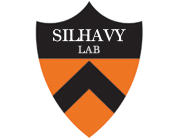The CpxQ sRNA Negatively Regulates Skp To Prevent Mistargeting of β-Barrel Outer Membrane Proteins into the Cytoplasmic Membrane
Type
UNLABELLED: The promoter most strongly induced upon activation of the Cpx two-component envelope stress response is the cpxP promoter. The 3' untranscribed region (UTR) of the cpxP transcript is shown to produce a small RNA (sRNA), CpxQ. We investigated the role of CpxQ in combating envelope stress. Remarkably, the two effectors specified by the transcript are deployed to combat distinct stresses in different cellular compartments. CpxP acts in both a regulatory negative-feedback loop and as an effector that combats periplasmic protein misfolding. We find that CpxQ combats toxicity at the inner membrane (IM) by downregulating the synthesis of the periplasmic chaperone Skp. Our data indicate that this regulation prevents Skp from inserting β-barrel outer membrane proteins (OMPs) into the IM, a lethal event that likely collapses the proton motive force. Our findings suggest that Skp can fold and directly insert OMPs into a lipid bilayer in vivo without the aid of the Bam complex. IMPORTANCE: Skp is a well-characterized periplasmic chaperone that binds unfolded OMPs. Surprisingly, we find that Skp can catalyze the folding and mistargeting of OMPs into the inner membrane without the aid of the other cellular proteins that normally assemble OMPs. Several OMPs function as diffusion pores. Accordingly, their mistargeting is lethal because it depolarizes the inner membrane. We show that the most highly expressed transcript of the Cpx stress response produces an sRNA from the 3' UTR, CpxQ, which combats this potential toxicity by downregulating Skp production. Defects in OMP assembly trigger the σ(E)response to upregulate factors, including Skp, that promote OMP folding. The Cpx response downregulates σ(E) Our findings reveal that this heretofore puzzling hierarchy exists to protect the inner membrane.

